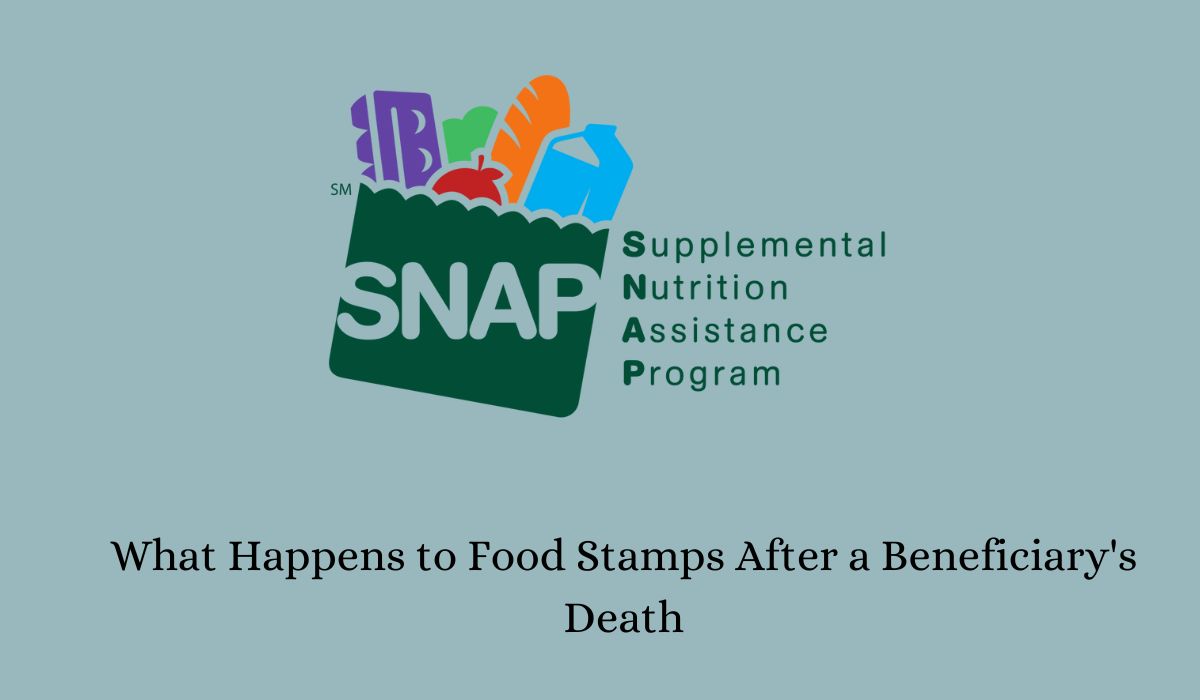The issue of what happens to food stamps or Electronic Benefit Transfer (EBT) benefits when a person dies is both sensitive and important.
Food stamps, now widely known as the Supplemental Nutrition Assistance Program (SNAP), support low-income individuals and families to afford nutritious food. About 10% of the US population is estimated to rely on SNAP benefits to meet their basic food needs.
So, If a person dies and has food stamps or EBT benefits, what happens to the food stamps already issued? The answer may vary depending on individual circumstances, but here are some general guidelines that can help you understand what to expect if you find yourself in this situation.
The Event of a Beneficiary’s Death
When a SNAP beneficiary passes away, several key procedures come into play regarding their benefits:
- Immediate Notification: The family or representatives of the deceased must notify the local SNAP office as soon as possible. This notification is important to prevent any misuse or over-issuance of benefits.
- Prorated Benefits: In many cases, SNAP benefits are prorated for the month of the recipient’s death. This means that the benefits are calculated based on the portion of the month the recipient was alive. If the recipient dies early in the month, a significant portion of the benefits might need to be returned.
- Unused Benefits: Any benefits remaining on the EBT card at the time of death can be used by other household members listed on the SNAP case. However, these benefits cannot be transferred to individuals outside of the original SNAP household.
- Closing the SNAP Case: The deceased individual’s SNAP case will be closed. If other household members are eligible for SNAP, they may need to apply separately to continue receiving benefits.
- Legal Implications: It’s illegal to use a deceased person’s SNAP benefits. Doing so can result in serious legal consequences, including fines and imprisonment.
Handling Overpayments and Misuse
In cases where benefits are overpaid due to a delay in reporting the death, the state agency may seek repayment. If benefits are used after the recipient’s death, this is considered misuse, and the state may take legal action against those who used the benefits.
Compassionate Considerations
It’s important to approach this issue with sensitivity. The loss of a family member is a difficult time, and dealing with administrative matters like SNAP benefits can be challenging.
State agencies typically provide guidance and support to help families navigate these processes during their time of grief. They may also offer compassionate considerations for households facing financial hardship due to the death of a loved one.
These considerations can include expedited processing of applications, waiver of certain requirements, and providing additional resources to help with funeral expenses.
Final Thoughts
Losing a loved one is never easy, and dealing with their affairs after they pass away can be overwhelming. If your loved one received food stamps or EBT benefits, it’s important to notify the local SNAP office as soon as possible to prevent any misuse of benefits.
These benefits are meant to help those who are struggling to afford food, and it’s important to respect the rules and regulations surrounding their use.
